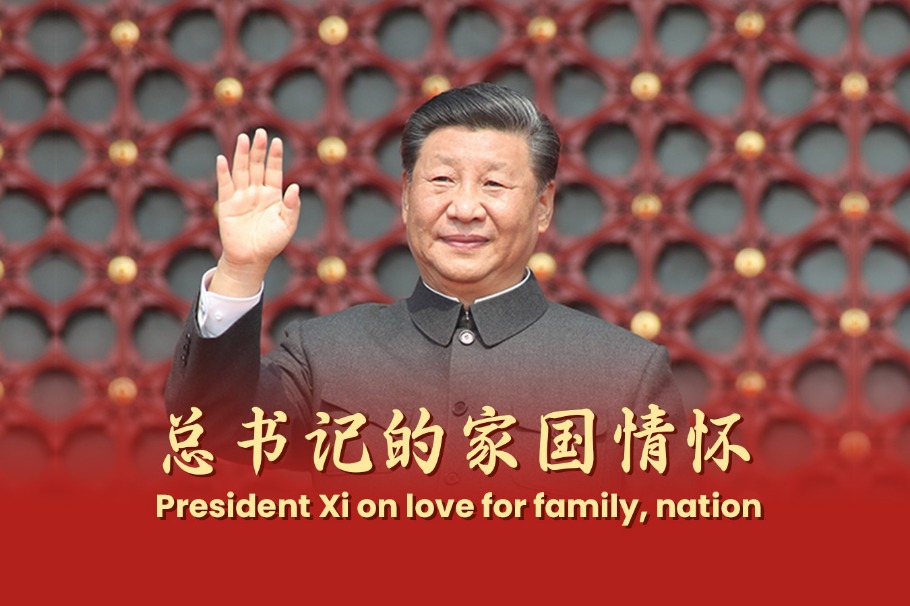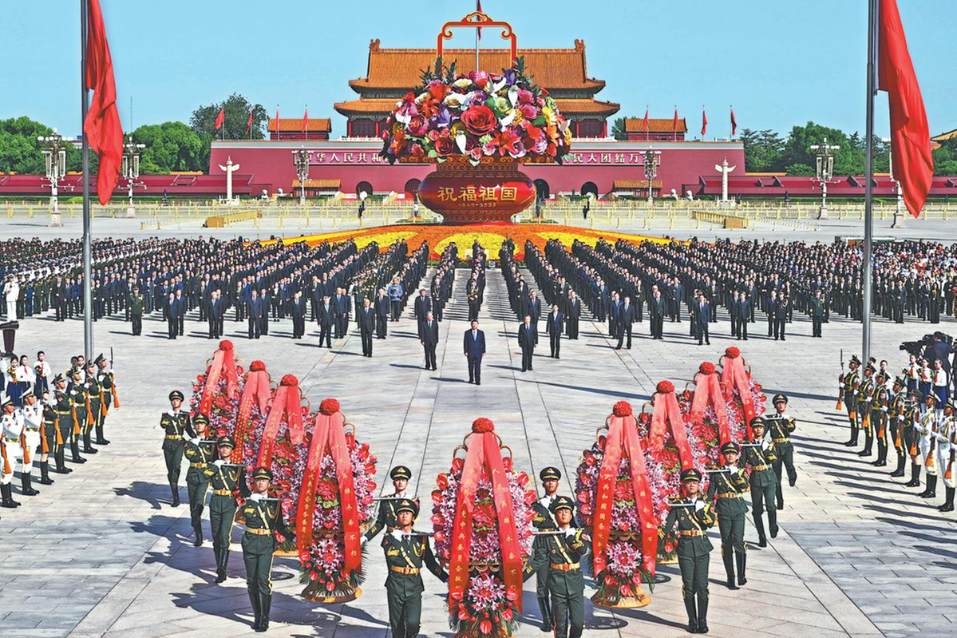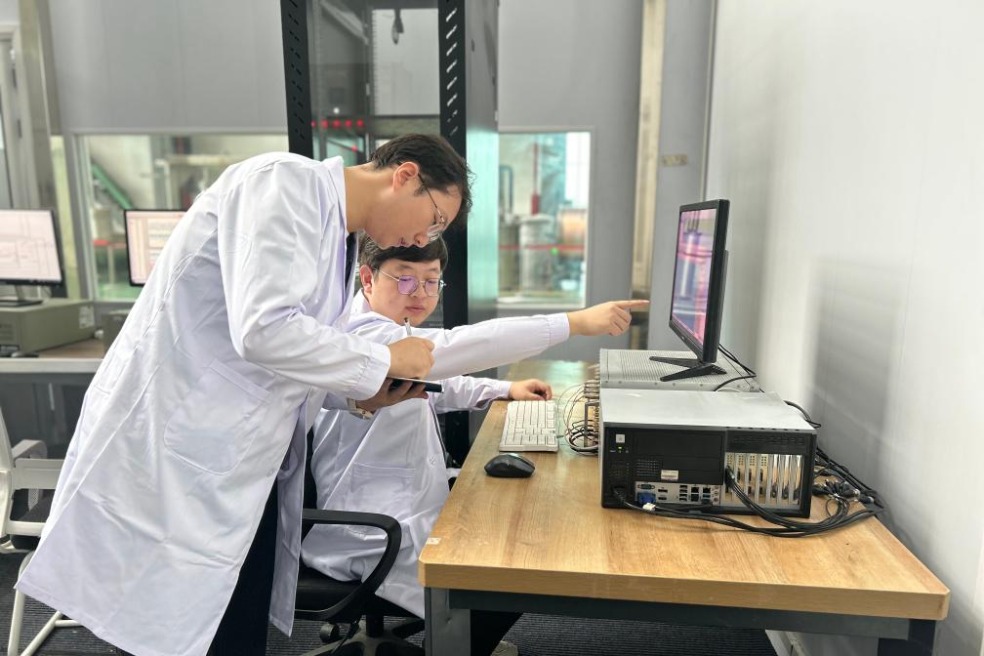Dialing into tradition
Lunar New Year film explores the perseverance of Peking Opera performers during the art form's 1980s decline, Fang Aiqing reports.

'I can't let go of it," young Peking Opera performer Gu Zhaohui says, when asked why he stuck to the traditional art form, which saw a significant decline in its appeal during the late 1980s.
That was a time when many of his fellow troupe members turned to disco, pop music and break dancing to make ends meet. However, Gu stayed, even though the showtime was cut to only 5 minutes one night to make way for those more popular forms of expression.
When the other performers felt too angry or humiliated to go onstage, Gu, in his 20s, but already a veteran, insisted on completing his one-man show, playing Guan Yu, an ancient general known for his courage and faith.
Based on his childhood experience, director Song Pengfei wrote such a story for Guo Wu Guan (Through the Five Passes), Apple's now traditional Lunar New Year film, shot entirely using iPhones and released on Jan 12.
The title, a proverb meaning overcoming many hurdles, is the name of a classic Peking Opera excerpt.
Song's previous works include Tracing Her Shadow, a Golden Goblet Award winner for best film at the 23rd Shanghai International Film Festival in 2020.
The director, born in 1982, was raised in the dormitory of a Peking Opera troupe in Beijing. His grandfather used to play erhu (a two-stringed traditional instrument) and his mother specialized in the performance of huadan (young female role).
It wasn't long before his mother became one of the Peking Opera actresses who tried their hand at disco dancing, dressed in miniskirt.The audience cheered.
Song still remembers the texture of her mom's headwear and the troupe's prop broadswords that he played with, out of curiosity, and has managed to bring the settings, the hue and atmosphere of the theater, and also people's looks and hairstyles of the time, to the short film.
And by shooting with the phone, he was able to set the lens to simulate the visual perspective of the opera performers and shoot the film while moving amid a crowd of actors and actresses on the stage. This creates an alternative expression compared to his former works, while soothing the anxiety of the opera performers in front of the camera, he says.
For Song, cinema and Peking Opera are both about humanity and storytelling. However, the traditional opera, as a form of stage drama, is more abstract in that the performers have to convey charm of the characters with nonphysical acting.
For example, when "riding a horse", the performer would only wave a whip. It is through the movements of waving — such as its frequency and strength — that the character's emotions are expressed.
This, apparently, involves established patterns and exaggeration to help the audience understand the plot.
Yu Xiaobin, starring as Gu in the film, recalls the first time he listened to the drums and gongs on the set.The 26-year-old was struck by the volume of the sound effects, which was a totally different experience from watching Peking Opera shows on TV.
Getting to know more about the traditional opera during the shoot, he became more interested in it, and developed a great respect for those practitioners, who abide by unwritten rules handed down from centuries ago and hold on to the industry.
Laosheng (elderly male role) performer Wang Ning, who also plays Gu, but only during the parts where the character is onstage, says Gu's persistence with Peking Opera reflects his own true heart.
Wang started learning Peking Opera at 5 years old and has been in a movie that won him an international title. He considered turning to the big screen or theatrical dramas that would bring more fortune and fame, but as he said, he couldn't let go of the old art form.
A famous saying goes: "One minute on the stage takes 10 years off the stage." But to Wang, 10 years is far too short.
"Once I make a mistake during a performance, I blame myself for not practicing enough."
One of his teachers, Ren Dechuan, was in his 70s when he took Wang on as a student in 2016. Ren passed away last year, leaving Wang as the only inheritor of the Yan school of laosheng in Beijing that has frequent opportunities to perform.
"It's my responsibility to pass it on," he says.
"It is not only the Peking Opera practitioners, but people from all walks of life that have experienced various hardships over the years and are striving to overcome the difficulties," Song says, adding that, by showing the perseverance of Gu, the Peking Opera performer, he hopes the audience will stick to their ideals and achieve success.
Just as Gu's teacher in the film says, "you won't present Guan's loyalty and righteousness well if you haven't met troubles in life."
Things are, however, getting better. Wang has noticed an increasing number of young audience members in the theater, and he himself has accumulated a sizable fan base on livestreaming platforms.
And those who left have got the chance to come back.
In the film, when warming up backstage, Gu's former Peking Opera colleagues are astonished and a bit envious that the youngster has been given the opportunity to play the lead role. With only their nostalgia, they leave to embark on new careers.
However, in reality, more than three decades later, Song's mother is thrilled to have been invited to teach Peking Opera. She reviewed the opera excerpts she used to play, copying the lines down and learning them by heart.
Song was touched seeing his mother reciting the lines on the subway while commuting to the school.
"She was forced to give it up, but when it came back to her, she took it very seriously," he says.




Today's Top News
- September manufacturing PMI rises
- Fifty expats awarded for contributions
- Continuing the cause of national rejuvenation
- Xi: Forge ahead in advancing modernization
- Beijing reaffirms one-China principle
- China releases position paper on UN General Assembly Resolution 2758






























